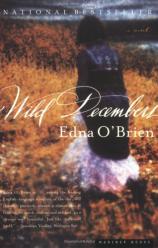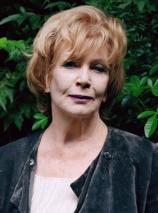Reading Group Guide
Discussion Questions
Wild Decembers

1. What is the significance of the novel's title, in itself and in association with the Emily Brontë quotation used as an epigraph? Why is the title in the plural?
2. What "frail and rusted shards" and relics of "the long ago" — actual and metaphoric — are still present in, or emerge from, the town, fields, bogs, and woods of Cloontha and Slieve Clochan and affect the people of today? In what respect might individual characters themselves be regarded as relics of "the long ago"?
3. In the preface, O'Brien writes: "They say the enemy came in the night, but the enemy can come at any hour, be it dawn or twilight, because the enemy is always there and these people know it, locked in a tribal hunger that bubbles in the blood and hides out on the mountain." Who or what is "the enemy"? How would you describe that "tribal hunger"? How does it make itself known in the lives of the characters?
4. In what ways are Reena and Rita's methods of acquiring land both different from and similar to the historical and contemporary ways of others? To what extent is their attachment to the land similar to Joe's and Mick's?
5. In what sense are the bogs "sacred places and the storehouse of our past," as Joseph writes to Bugler? What importance does this view of the bogs — and of the mountain itself — take on?
6. How important to the story and to the lives of the people of Cloontha is the notion of the outsider–"the inferiority of the returned exile," in Mr. Leveau's words? Why in a community like Cloontha is the outsider, however related to the locality by family history, seen as a threat?
7. Just before he beats her, Breege sees in Joseph's eyes "that mad rage that is the inverse of love." What other "inverses" of and obstacles to love occur in the novel? How and why do destructive feelings and actions turn people away from the love and friendship that they otherwise feel – or might feel — for one another?
8. As a result of Joseph's attack on Breege, "Fear had come into the house and with fear falsity." What fears and what falsities existed in the lives of Breege, Joseph, and the others prior to the beating, and which become prominent after the beating?
9. What roles, possibilities, opportunities, and resources are open to the women of Cloontha? What are the consequences for Breege and other women of ignoring or challenging conventions and expectations?
10. What is the purpose of the sometimes garbled, sometimes inappropriate literary and mythic quotations and allusions favored by Joseph and the Crock? How does deliberate or unintentional misrepresentation of history, myth, legend, and law result in a distorted view of the present and a deformed sense of oneself?
11. In what ways, and to what extent, does Breege take on a mythic presence and function, especially beginning on the moonlit night when she takes Bugler to her family's graveyard on the lake isle? In what ways, and to what extent, is Joseph's behavior the contrary of the mythic hero's or legendary warrior's? What other characters might be seen as similarly representing or alluding to mythic figures?
12. What supernatural signs, elements, and presences play a part in the story? How are they introduced, in what contexts, and with what relevance to the characters and the action?
13. What factors result in Joe Brennan's ending up feeling "outside everyone and everything . . . , an outcast in the world"? What forces–personal, familial, communal, and historical–come together to impose an outcast state on Joseph? To what extent is he himself accountable for his virtually complete isolation?
14. Alone in the Brennan house after Joe's sentencing, Breege, "holding her belly, . . . reaches back, back to those nameless and spectral forces of which she is made. " If we were to give names to those "spectral forces," what might we call them? In what way are they the forces of which Breege herself is made?
15. O'Brien has said that "for the characters in Wild Decembers, the holding on to land is as vital as the holding on to life. They are interchangeable." In what ways are the two interchangeable for O'Brien's characters? To what extent might that interchangeability be the consequence of generations of deprivation and an inherited fear of dispossession?
Wild Decembers
- Publication Date: May 14, 2001
- Paperback: 257 pages
- Publisher: Mariner Books
- ISBN-10: 0618126910
- ISBN-13: 9780618126910








